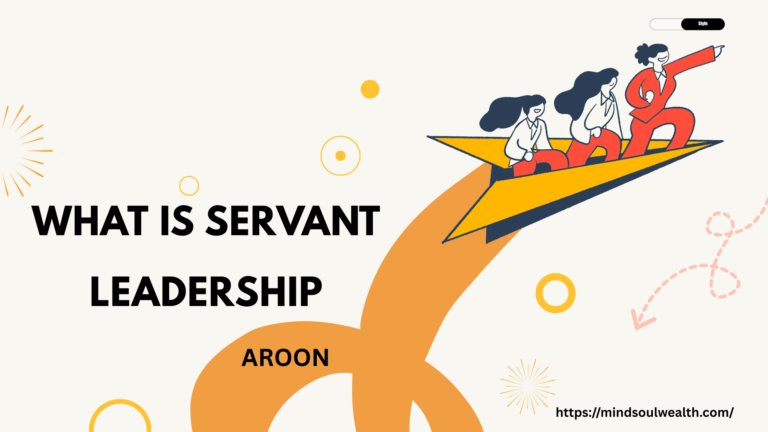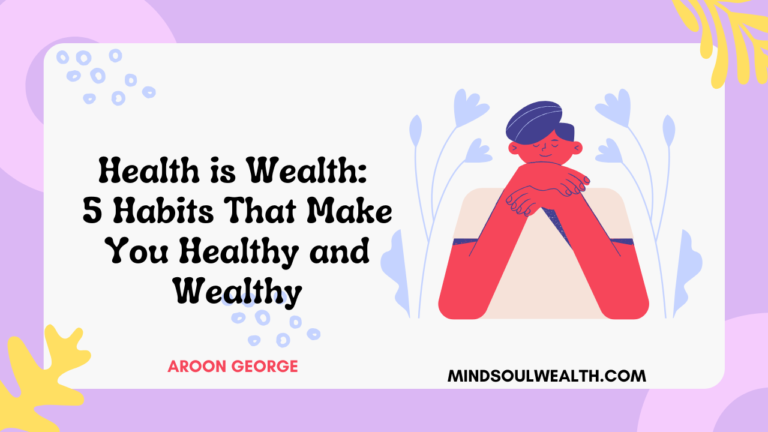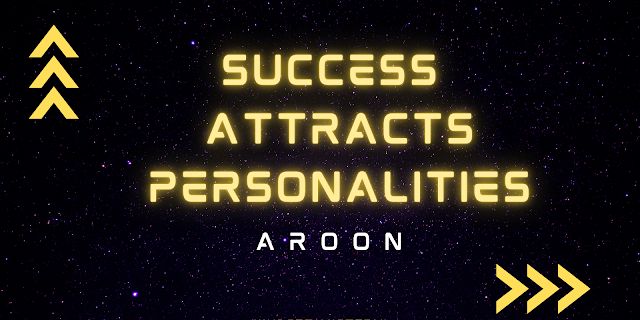By Aroon George
June 3, 2025 – 18 MIN READ
Jump to section
- What is self-discipline?
- Why should I care about building self-discipline?
- 8 ways to build self-discipline
- Self-discipline examples
- Books every self-disciplined person should read
- Self-assessment questions for your discipline journey
- Final thoughts to kickstart your self-discipline development
We live in a world where we encounter people with different temperaments. When we meet someone, we often have no idea what they are going through or what kind of reaction we might face. This uncertainty in behavior is something we deal with every day—and at the same time, others are experiencing our behavior too.
However, if you have self-discipline, you can present a calm, stable, and productive attitude. It helps you respond to others thoughtfully instead of reacting impulsively. Self-discipline allows you to maintain control over your actions and emotions, no matter how others behave.
For many, self-discipline represents the bridge between who they are and who they want to become. It’s not about perfection or rigid control—it’s about developing the inner strength to align your daily actions with your deepest values and long-term vision.
Learning discipline isn’t a destination or a measuring stick for your worth: it’s a practice. Practices never end, but we do become more skilled. With consistent effort, you learn how to work with who you are and what you have to develop the self-discipline that matters for you and your goals.
What is self-discipline?
Self-discipline is the foundation of personal success and emotional stability. It’s the ability to control your impulses, emotions, and behaviors in pursuit of long-term goals. When you master self-discipline, you gain the power to shape your destiny rather than being shaped by circumstances.
The definition encompasses training yourself to control your behavior, mind, and body over time. Unlike external discipline that relies on rules and punishment, self-discipline is an internal compass that guides you toward consistent, purposeful action.
Self-discipline is a soft skill, meaning it’s applicable in a wide variety of settings and situations. Like replacing a bad habit, learning to practice emotional self-regulation is a constant process. This is closely related to self-management, which is when you take personal responsibility for your behavior and any rewards or consequences that arise from them.
Developing self-discipline isn’t just about willpower—it’s about creating sustainable systems that support your long-term vision. People with strong self-discipline consistently make choices that align with their values, even when faced with immediate temptations or challenges.
Your mind is your true self. Many people believe the body defines who they are, but in reality, it’s the mind that guides everything. When your mind is under control, everything else falls into place. Whatever you feed into your mind will eventually show in your actions.
Growth doesn’t happen by accident Building discipline helps you develop habits, confidence, and clarity—so you can become the version of yourself you know you’re capable of being.
Why should I care about building self-discipline?
Learning how to develop self-discipline has many life-changing benefits:
1. It reduces anxiety and increases emotional stability
When we feel in control of our own emotions and reactions, we can focus on what we need to do instead of worrying about what could go wrong. Decision-making becomes easier and your mental health improves. You can respond to others thoughtfully instead of reacting impulsively, maintaining control over your actions and emotions regardless of external circumstances.
2. It increases your ability to achieve short-term and long-term goals
Having self-discipline means you can proactively remove temptations and avoid self-sabotaging behaviors. When it comes to studying, working, or managing money, you’ll be able to prioritize, focus, and work harder and smarter. You naturally start making choices that align with your values, even when faced with immediate temptations or challenges.
3. You’ll be happier and more fulfilled
Discipline leads to progress, which leads to success. When you cultivate discipline, you’ll be happier and more confident in yourself because of how far you’ve come. Research has found that when you learn how to be more disciplined, it positively impacts your attitude, assertiveness, and conscientiousness with your tasks.
4. You’ll develop unshakeable resilience
We all have moments where we’re unmotivated and want to take the easy path. The more you resist distractions and stay committed to your goals, the easier it becomes. Building self-discipline strengthens your mental muscles and creates lasting change in your thought patterns.
5. You’ll understand the true value of time and energy
When you truly understand the value of life, you begin to take care of two important things: time and energy. You become aware of how quickly time passes, and you realize the deeper meaning of life’s worth. You no longer waste your time or energy, nor do you give them away carelessly.
8 ways to build self-discipline
Discipline is an ability that you must hone. It benefits from creating habits and routines that eventually make practicing self-discipline the easiest path. Here are practical strategies to build unshakeable self-discipline:
1. Start with mental self-discipline
Your mind is your most powerful asset. The key to mental self-discipline lies in consistency. Start small with daily meditation, positive affirmations, or mindful breathing exercises. Feed your mind with positivity, wisdom, and discipline, and you will enjoy the rewards through your behavior and results. This mental aspect of self-discipline requires consistent practice and conscious effort.
2. Master physical self-discipline through your body
To build discipline, you need a strong mind and a strong body. One of the best ways to achieve this is by taking regular walks and joining the gym. Physical activity makes you stronger, more focused, and full of energy. A powerful body supports a powerful mind. Your gut is often called your second brain—what you eat doesn’t just affect your body, it also affects your mind.
3. Write out your goals and create visual reminders
Jot down where you want to be in two, five, or eight years, and hang it somewhere you’ll see it each day. Visual reminders are wonderful motivators. One study found that students fall short of their intellectual potential when they don’t have self-discipline, but when students have self-discipline, it helps them focus on what’s important and succeed at their goals.
4. Practice prioritizing and time management
Making a to-do list or an action plan will help you stay organized, and you’ll feel accomplished with every task you cross out. Put the less exciting or most demanding responsibilities at the top and do those first. Then your best energy goes to your priorities; you won’t need to sweat the small stuff.
5. Know your weaknesses and be proactive
Acknowledging where you struggle is the first step to changing your habits. Be proactive. If you know music, apps, or TV distracts you, turn them off while studying. If you need to catch up on work but have multiple plans on the weekend, reschedule. Don’t get in your own way, and don’t lie to yourself about who you are.
6. Get others to hold you accountable
We all need that extra push now and then. Family, friends, colleagues, mentors, and coaches can help keep you on track and be there to support you when things get busy or hard. Choose to spend time with people who value time and energy. Avoid those who waste them freely without realizing their importance.
7. Develop emotional and spiritual discipline
Take care of your mind, heart, and soul. Don’t waste these precious parts of yourself on meaningless activities. Avoid becoming a toxic person—and don’t live among those who spread negativity. Instead, engage in conversations and activities that are full of love, kindness, and care. Respect others, forgive often, and help those in need.
8. Focus on personal development first
The words focus, goals, consistency, and achievement are all part of one bigger message: develop yourself. If you haven’t developed yourself, you can’t help or improve anything around you. Whether it’s building strong relationships, succeeding in a job, or growing a business—everything begins with you.
Self-discipline examples
You exercise self-discipline everywhere in your life—at home, at work, in your relationships, and in your daily choices. But even though self-discipline is seemingly everywhere, it might be difficult to narrow down when and where you want to exercise it.
If you want to know how to learn discipline but need examples, here are practical applications:
- Morning Routine: Starting each day with intention and purpose, perhaps with meditation or exercise
- Mindful Eating: Choosing foods that nourish both body and mind, understanding that your gut affects your mental state
- Regular Exercise: Committing to daily movement and strength training to build both physical and mental strength
- Time Management: Having solid time management skills at work and valuing your time appropriately
- Emotional Regulation: Regulating your emotions when you express yourself and responding thoughtfully instead of reacting impulsively
- Evening Reflection: Reviewing your day and planning for tomorrow with purpose
- Consistent Sleep: Maintaining a regular sleep schedule for optimal recovery and mental clarity
Books every self-disciplined person should read
Reading is fundamental to feeding your mind with wisdom and discipline. Here are essential books organized by category:
Classic foundation books
- “Atomic Habits” by James Clear
- “Think and Grow Rich” by Napoleon Hill
- “No Excuses!: The Power of Self-Discipline” by Brian Tracy
Mental discipline & mindset
- “The Power of Now” by Eckhart Tolle
- “Meditations” by Marcus Aurelius
- “Man’s Search for Meaning” by Viktor Frankl
Spiritual growth
- “The 7 Habits of Highly Effective People” by Stephen Covey
- “The Power of Positive Thinking” by Norman Vincent Peale
- “The Alchemist” by Paulo Coelho
Emotional intelligence
- “Emotional Intelligence” by Daniel Goleman
- “The Four Agreements” by Don Miguel Ruiz
Practical self-development
- “The Compound Effect” by Darren Hardy
- “The Miracle Morning” by Hal Elrod
- “Mindset” by Carol Dweck
Self-assessment questions for your discipline journey
Before embarking on the path of self-discipline, it’s essential to honestly evaluate where you currently are in life. Ask yourself these crucial questions:
- Are you an optimized person, or do you feel hopeless?
- Do you have clear aims and goals?
- What kinds of thoughts do you have—worldly or spiritual?
- Do you believe in yourself?
- Do you read books to expand your thinking?
- Do you practice meditation?
- Do you genuinely love and care for others?
- Do you share your positive thoughts with others?
- Are you struggling with depression or negative emotions?
These questions aren’t meant to judge but to help you understand your starting point. Only through honest self-assessment can you begin building the self-discipline needed to transform your life.
Final thoughts to kickstart your self-discipline development
You deserve to be your best self and live your best life. Whether you want to get promoted, improve your health, fulfill your dreams, or strengthen your relationships, self-discipline is one of the most significant factors in your success.
Self-discipline is not just a habit—it’s a way of life. It shapes how you think, act, eat, speak, and respond to the world around you. By disciplining your mind, your body, your emotions, and your time, you take full responsibility for your life. You stop living on autopilot and start living with intention.
Learning how to be self-disciplined is all about expanding your comfort zone and requires repeated dedication. It’s tricky for everyone, so start with baby steps: work for 30 minutes, take a break for five, then slowly increase your work time as your body and mind adjust.
Building self-discipline is not about perfection—it’s about progress. Focus on small, consistent improvements rather than dramatic changes. Track your habits, celebrate small wins, and learn from setbacks without harsh self-judgment.
Every small decision—what you eat, how you think, who you spend time with, how you use your energy—either builds you or breaks you. The truth is simple: you cannot lead, love, grow, or succeed without first developing yourself.
We won’t sugarcoat it—building discipline is hard. But if you’re willing to put in the work and commit to the beautiful, lifelong journey of becoming the best version of yourself, the transformation will be extraordinary.
So begin now. Respect your time. Fuel your mind. Strengthen your body. Fill your heart with kindness. Smile with your soul. And above all, never underestimate the power of consistent, disciplined action in creating the life you truly want to live.
Growth doesn’t happen by accident Start your self-discipline journey today—your future self will thank you.











